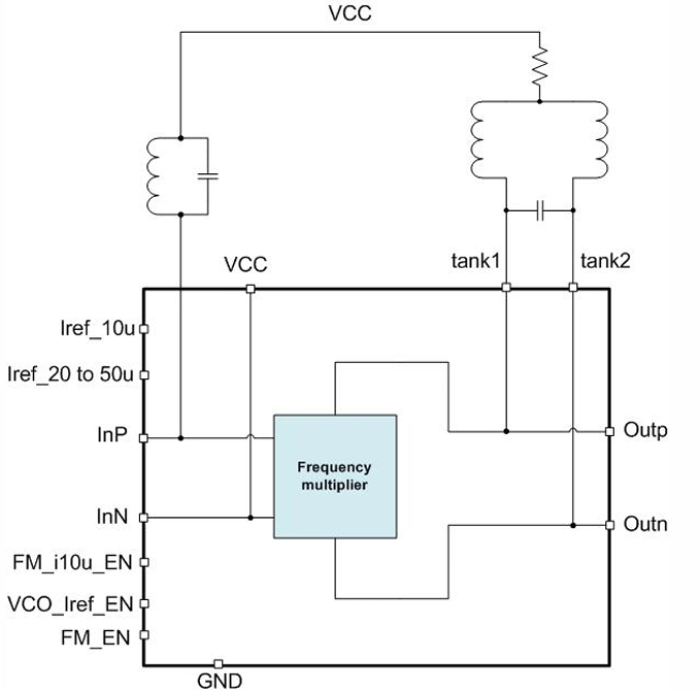A frequency multiplier is a circuit that generates an output signal whose output frequency is a harmonic of its input frequency. Frequency multipliers consist of a nonlinear circuit that distorts the input signal and consequently generates harmonics of the input signal. An input filter and output resonance circuit select the desired harmonic frequencies and remove the unwanted fundamental and other harmonics from the output.
The block is fabricated on iHP SiGe BiCMOS 0.25 um (SGB25V) technology.
120..950 MHz Frequency multiplier
Overview
Key Features
- iHP SGB25V
- Wide frequency range (120..950 MHz)
- Low current consumption
- Operating frequency selection using external components
- Small area
- Portable to other technologies (upon request)
Block Diagram

Applications
- Frequency synthesizer
- Functional signal generator
Deliverables
- Schematic or NetList
- Abstract model (.lef and .lib files)
- Layout view (optional)
- Behavioral model (Verilog)
- Extracted view (optional)
- GDSII
- DRC, LVS, antenna report
- Test bench with saved configurations (optional)
- Documentation
Technical Specifications
Short description
120..950 MHz Frequency multiplier
Vendor
Vendor Name
Foundry, Node
iHP SiGe BiCMOS 0.25 um
Maturity
Silicon proven
Availability
Now
Related IPs
- 800/1000 MHz DLL-based frequency multiplier
- 10 to 200 MHz DLL-based frequency multiplier
- 30-200 MHz DLL-based frequency multiplier
- 60 to 83 MHz High linearity intermediate frequency amplifier
- 7 to 20 MHz Intermediate frequency amplifier
- 1 to 200 MHz 3rd order low-pass filter with frequency adjustment system